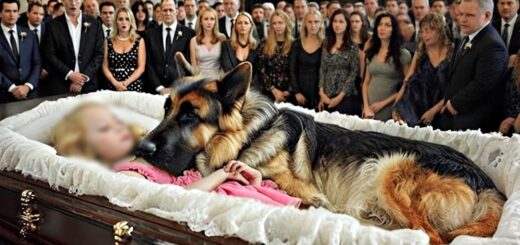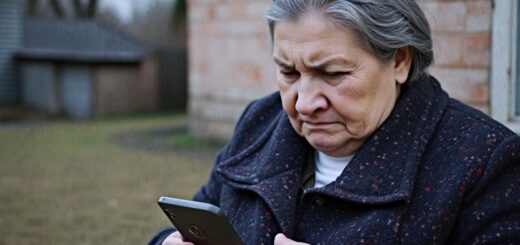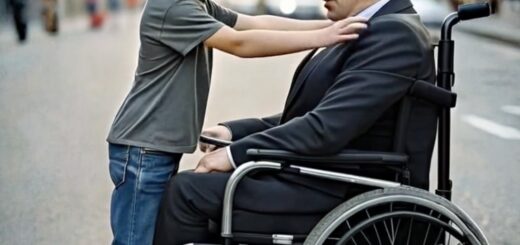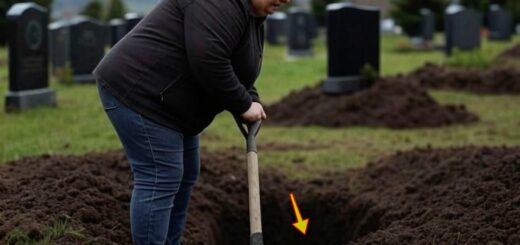A terminally ill millionaire woman wandered through a winter park, and upon seeing a freezing man with a child on a bench, she took them home…
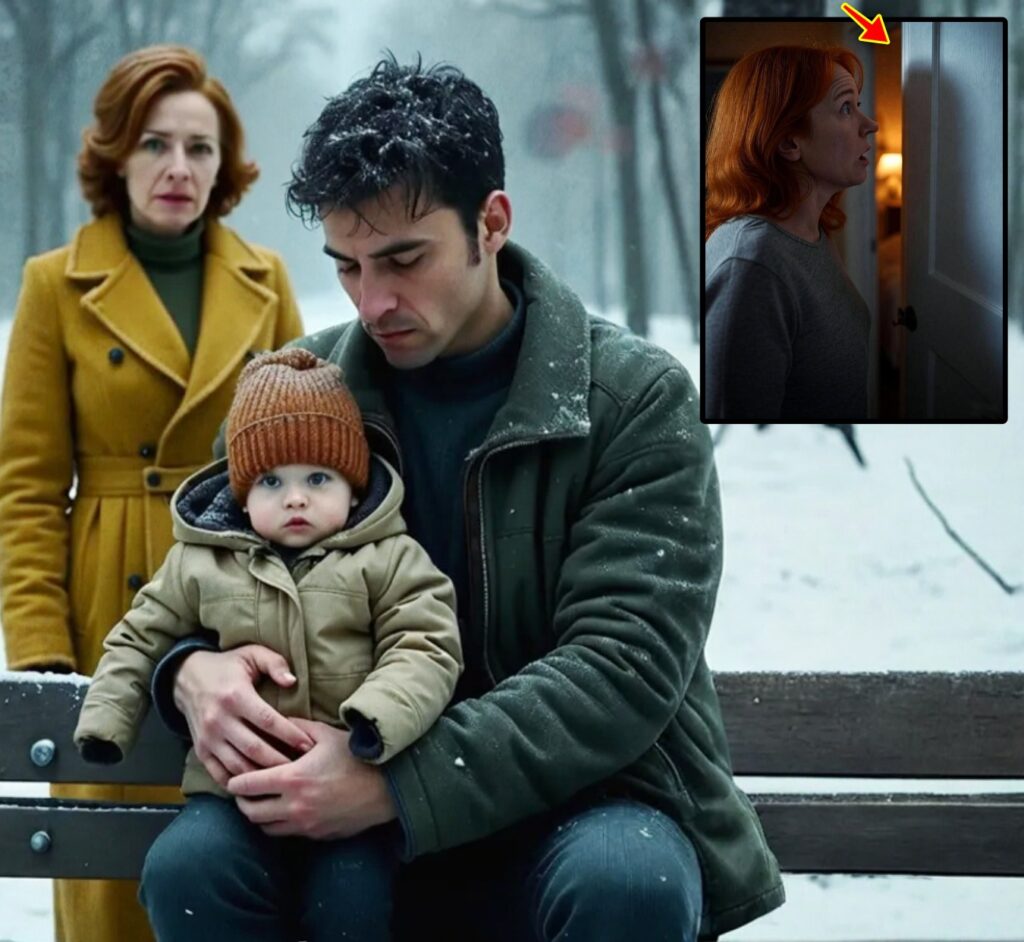
Snow fell in thick flakes, as if the sky were trying to wrap the city in a blanket of oblivion, to hide all human suffering and weariness from it.
Emily Johnson stopped at the doors of the medical center, clutching a thin envelope in her frozen fingers. Her fingers weren’t trembling; outwardly, she was still composed, as if at a presentation or a board meeting.
But somewhere deep inside, behind the facade of strength and control, a quiet panic had begun. In this envelope, amid the cold medical terminology, hid her sentence—glioblastoma, stage four. That was it. Game over.
She stepped forward, but her legs felt like stone. The wind, vicious and biting, whipped around the corner, slapped her face, tangled in her hair, tugged at her coat collar.
But Emily didn’t flinch. No fear, no pain, no cold. In her head, where business ideas, logistics, and exchange rates usually swarmed, there was only one sound—a monotonous, viscous hum.
An internal echo: the end. The snow merged with the wet asphalt, seeping under the soles of her designer boots, staining them, leaving salty streaks. Once, she would have hated that.
Once, she could have reprimanded her assistant for such a walk in the cold. Now—she didn’t care. The sky blended with the city in a gray haze.
Tree branches, like an old woman’s fingers, bony and twisted, reached upward, as if begging for mercy. Emily looked at them and felt a strange connection between these trees and herself, between their silent pain and what had settled inside her. Her whole body, once strong, agile, enduring, now felt like a fragile structure on the verge of collapse.
People passed by, with bags, in headphones, with children, with dogs. Each had their own destination. She had none.
No plans, no meetings, no tomorrow. Only the diagnosis in the envelope, burning through her coat pocket. She slowed her step by the window of a toy store, where a plastic Santa Claus waved, and artificial snow fell in an endless loop.
Once, such things would have brought a slight smirk; now—bitter irony. Who would celebrate Christmas with her now? Who even knew she was still alive? The headquarters on the 32nd floor, her name on the Forbes list, a personal chef, an art collection—all of it seemed not wealth, but artifacts of someone else’s illusory life. A bus passed by, splashing her up to her calves with dirty slush.
She didn’t turn around. Didn’t get indignant. It no longer mattered.
In this new, terrifying simplicity of things, everything became superfluous: numbers, clothes, even her own name. When she reached a small park, her feet slowed on their own. There, on a bench under a streetlamp, like part of the urban scenery, sat a man with a child.
He held the boy close, as if he could shield him from all the world’s evil. Snow had already coated their shoulders, covered their hair, cheeks. They almost blended with the landscape, like two living snowdrifts.
But Emily knew right away: they weren’t sleeping. They were just waiting. The boy was no more than six, his face sharp, nose red, eyes huge and anxious despite the fatigue.
His mitten dangled on a string, like a child’s illusion of protection slipping away. The man looked even more exhausted. Stubble, chapped lips, a gaze with more pain than words.
Both were dressed in thin jackets, not suited for such freezing weather. Emily approached without thinking what to say. Something inside her shrank, a fragile, long-forgotten feeling revived.
She stopped in front of them, as if testing reality. You can’t sit here like this, her voice came out unexpectedly quiet. The child—he’ll freeze.
The man slowly turned his head. His gaze wasn’t hostile. There was something else: weariness, detachment, and just a bit of dignity that hadn’t left yet.
Where else can we go? he asked hoarsely. Emily swallowed. How many times had she asked herself that question in her head over the last forty minutes.
Home? she murmured, knowing the answer already. He smirked bitterly, without malice. We had a home.
But no more. Now only here. The child was silent.
He didn’t hide, didn’t cling to his father, just sat staring ahead, as if accustomed to only cold and silence around him. What’s his name? Ethan. And I’m David.
How long have you been here? Since yesterday. We looked for a shelter first.
But with a child, without papers. They won’t take us. Won’t even look.
Emily suddenly felt a wave of anger surge through her body. Not just at the system, not just at the rules she herself had considered logical for years. At herself, for years of blindness.
For not noticing people like them. Just passing by. And yet, not so long ago, before all this luxury, she too had once sat alone in a cold dorm room with a heater and a pack of noodles.
Come with me, she said quietly. I have a warm place. Tea.
And a blanket. You need to warm up. Especially the boy.
David didn’t answer right away. He looked at his son. The boy nodded slightly, as if he were deciding.
Only then did the father slowly stand, carefully holding the child close. The boy weighed almost nothing. Too light for his age.
Emily stepped forward. Extended her hand. Not like a business partner.
Not like a director. Just as a person. And for the first time in many years, someone touched her not out of politeness, not by duty, but out of trust.
They walked together. The snow covered their tracks, as if trying to hide this meeting from the whole world. David struggled to move his legs, not from the cold, but from emptiness.
He hadn’t felt support under him for a long time, didn’t believe in help, much less in goodwill from a woman whose appearance clearly said she was from a world he no longer belonged to. Her coat cost more than his entire life in the last year. But in her gaze, there was no contempt, no pity, only firm intent.
It frightened and attracted at the same time. Ethan, clinging to his father, buried his nose in his neck. His lips were blue, breathing erratic.
But he didn’t complain. Never complained. David still remembered how Ethan asked not to turn on the light in the room when the money for electricity ran out, and how he brought bread from school because the teacher gave it.
All that seemed like another life, one where they still tried to cope on their own. Emily walked a little ahead, and each of her steps sounded different, even, confident. No slippery doubts under her heels…



